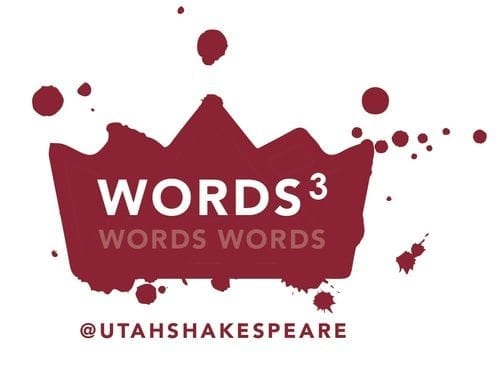CEDAR CITY — Each year the Utah Shakespeare Festival chooses two new plays as part of their Words3 (Words Cubed) series. Each selected script and playwright receives a week-long workshop at the Festival along with a few performances and accompanying audience talkbacks. The 2020 selections, Michael Hollinger’s The Virgin Queen Entertains Her Fool and Vincent Terrell Durham’s Polar Bears, Black Boys, and Prairie Fringed Orchids are an excellent example of the challenges faced by the Festival as it enters its sixth decade: How to address and retain their traditional classics-minded audience while maintaining cultural relevance and building an audience for the future?

The Virgin Queen Entertains Her Fool seems an obvious choice for the Festival’s Shakespeare-loving audiences. The genre-defying story sweeps us into a fictional kingdom of the 1570s Europe where a distinctly Elizabethesque aging queen must name a successor before it is too late. The royal drama unfolds as messy, murder-soaked lineages are revealed, infidelities and hidden identities are unmasked, and the queen’s legacy is shaken. The language is comic, historically anachronistic, but pleasant as it frames the unfolding action. I smiled along with the snarky humor, but found myself reaching for any emotional foothold to make the royal tailspin feel relevant. It becomes increasingly clear that not one of the four characters has any interest in matters beyond the palace walls. Their only goals are survival and maintaining the power of their awful family line.
The top-notch performances of the Festival actors, especially of Desirée Mee Jung and Michael Doherty as the eponymous queen and fool (respectively), couldn’t save the show from a plot that aims at Shakespearean drama and unsurprisingly falls short in both linguistic genius and thematic power. The positive audience responses showed the thrall that Shakespeare’s life and times still holds over the Festival’s American audience. The stakes in this play couldn’t be higher, and yet this piece of speculative drama left me feeling flat.
In an entirely different world, Durham’s Polar Bears, Black Boys, and Prairie Fringed Orchids couldn’t be more timely. It grapples with the issues that confront our nation in daily headlines of violence against Black Americans and environmental devastation. Though it offers no easy solutions, it does provide nuanced exploration of the conversations that can so often leave people tongue-tied or reaching easy answers. Durham’s characters are thoughtfully drawn from portraits too often reduced to newspaper quotations. The action centers on an evening cocktail party in Harlem in February 2019. A White couple, Molly and Peter, are hosting members of the Black community in their newly renovated brownstone. The guests are Shameka, the owner of a local Black bookstore; Juquan, a Black Lives Matter leader and his White boyfriend Tom; and Rita Dupree, the mother of a child recently killed by police. As the evening progresses, the party veers into more increasingly dangerous territory as good intentions are confronted with harsh realities. Durham’s dialogue, read by these absolutely superb actors, is provocative and powerful.
I was on the edge of my seat as actors gave voice to the arguments and conversations that so many of us have wrestled with in recent years. Masterfully, Durham lays bare the juxtapositions of activism and saviorism, gentrification and economic progress, racism and ignorance that are ravaging communities and public discourse. These characters are all hopeful for a brighter future for the three-year-old son sleeping just off stage. As they discuss art, drinks, sea turtles, and their relationships the existential threats loom large around them. As all humans must, they are seeking for, at minimum, meaning for their suffering and, at best, to build positive change from the rubble of the entrenched and broken systems that confront them. Polar Bears . . . left me utterly shaken. I can only hope it will make its way to a larger audience soon as it has so much to say and we haven’t got a moment to lose.
I applaud the Utah Shakespeare Festival, and Derek Charles Livingston (Director of New Play Development) in particular, for giving resources and voice to these two excellent scripts and I look forward to seeing how this series will continue to shape the future of new play development in the US in the years to come.
[box]The staged readings in the Utah Shakespeare Festival’s Words Cubed series ended on August 28, 2021. To learn more about the program, visit www.bard.org/words-cubed.[/box]

